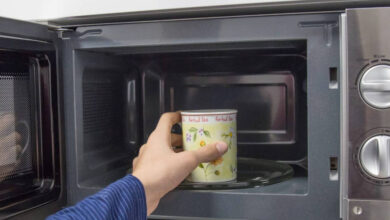My Body Is Always Hot But No Fever

My body is always hot but no fever. People feel the heat without having a fever for a variety of reasons. Some reasons, such as eating hot foods, being in a humid atmosphere, or experiencing stress and worry, maybe temporary but easy to recognise.
Table of Contents
My body is always hot but no fever
Some people, though, may feel hot in the summer for no apparent cause, which might be an indication of an inner disease. Here are some reasons why people heated up without any fever.
Spicy Foods
Certain meals and drinks might cause people to become warmer than normal. These are some examples:
- alcoholic drinks,
- caffeine,
- spicy foods,
- hot drinks
Exercise
Exercising or performing physical activity can raise a person’s body temperature, particularly if they:
- are not used to regular exercise
- Exercise or do physical work in humid and warm surroundings
- overexert themselves
According to the experts, people who train in hot weather should be on the lookout for indicators of heat-related diseases and should stop exercising if they feel faint or weak.
Avoiding activity during the warmest parts of the day, consuming more water, and pacing may assist people prevent being overheated during exercise.
Anxiety
Physical sensations such as feeling hot and sweating may occur when a person is worried or nervous. This occurs as a result of the “fight or flight” reaction, which raises the person’s blood pressure and heart rate flow to their muscles.
An anxious or disturbed individual may also notice:
- high/low heart rate
- palpitations in the heart
- muscular tension
- fast breathing
Diabetes
People may experience increased heat in their bodies or sweating more than normal while eating these items.
People with diabetes may be more susceptible to heat than others, according to the International Diabetes Federation. This occurs for a variety of reasons, including:
Dehydration: Diabetics become dehydrated very quickly in hot temperatures. Inadequate fluid intake can also boost blood glucose levels, causing a person to pee more often. This aggravates dehydration even further.
Complications: Diabetes can lead to complications that damage blood vessels and nerves, affecting a person’s sweat glands. This may result in less sweating, making it more difficult to keep cool.
Diabetes symptoms, according to the trusted expert reference, include:
Frequent urination, particularly at night; feeling thirsty and hungry; fuzzy vision; numbness in hands or feet; exhaustion; accidental weight loss.
Hyperthyroidism
It occurs when the thyroid gland becomes hyperactive and produces an excessive amount of thyroid hormones. Thyroid hormones have an impact on how a person uses energy.
Heat intolerance is a common sign of hyperthyroidism, along with other signs such as:
- trembling hands
- a pulse that is too fast or too irregular
- diarrhoea or a lot of bowel motions
- sleeping difficulties
- fatigue
Clothing
Heavy, tight, or dark clothes can raise body temperature and hinder air circulation around the body. In addition, synthetic fibres may retain heat and hinder sweat from evaporating. This might result in excessive heat and sweating. Wear a simple and loose dress and try to keep your home cool in summer.
Note: People who are hot but do not have a fever should consult their doctor.




